Written by: Dr. Susan Amidi
Translated into English by: Sherzad Nayef
We often hear the term “division” circulated in the media by some politicians, analysts, and commentators—a narrative that directly influences public opinion and societal attitudes toward alternative governance systems.
In reality, federalism and division are two completely different systems for managing state affairs, each reflecting a distinct approach to the distribution of power. Federalism is a political system in which several states or regions unite under a single political entity while retaining a certain degree of self-governance. In this system, power is shared between the federal (central) government and regional governments, as defined by a constitution that clearly outlines the responsibilities and authority of each.
The primary aim of federalism is to unify diverse entities within a single state through a flexible and balanced distribution of power, without leading to the disintegration of the state. From this perspective, I believe federalism offers the best solution for the Kurds — a middle ground that preserves national unity while granting the Kurds the right to self-governance. This model would enable them to safeguard their cultural, linguistic, and political identity while ensuring fair and equal participation in power-sharing.
Of course, this approach is not without its challenges. Reaching an agreement with other Syrian components on a federal model remains difficult, and there are concerns that federalism could eventually lead to future secession. Additionally, issues related to the distribution of resources, wealth, and political power require serious discussions and constitutional guarantees.
To address the concerns of other components, it is essential to emphasize that while the Kurds have long aspired to establish an independent Kurdish state following decades of marginalization, Kurdish political parties and leaders are fully aware that division could spark new conflicts over borders and resources. Such a move would likely face strong opposition from neighboring countries, ultimately leading to further instability in the region — an outcome both Kurdish leadership and the population firmly reject.
At present, the Kurds in Syria — particularly in the northeastern regions — lean toward the model of “self-administration,” which closely resembles a form of federalism. Nevertheless, the future of this model remains tied to the broader political resolution in Syria and the extent to which it is accepted by the various national and regional actors.
Despite these realities, chauvinistic media continues to portray federalism as a form of division, aiming to incite public fear and justify the persistence of extreme centralization in governance. This narrative is often used to intimidate people by suggesting that federalism would lead to the loss of national sovereignty or the weakening of the state, even though successful federal systems worldwide prove otherwise.
One of the reasons for this negative perception is the association of federalism with unsuccessful or conflict-ridden attempts in some Arab countries, such as Libya and Iraq. Additionally, the lack of constitutional awareness in many Arab societies contributes to misunderstanding federalism as a democratic governance system — one that has proven its stability and efficiency in countries like Germany and Switzerland
. In conclusion, while the Kurds possess a strong cultural and historical identity, geopolitical factors, international balances, and regional interests pose significant obstacles to the establishment of an independent Kurdish state. However, this reality does not negate the importance of ongoing discussions about Kurdish rights, whether through autonomous governance or other forms of political recognition that promote justice and equality among all components of the state.





